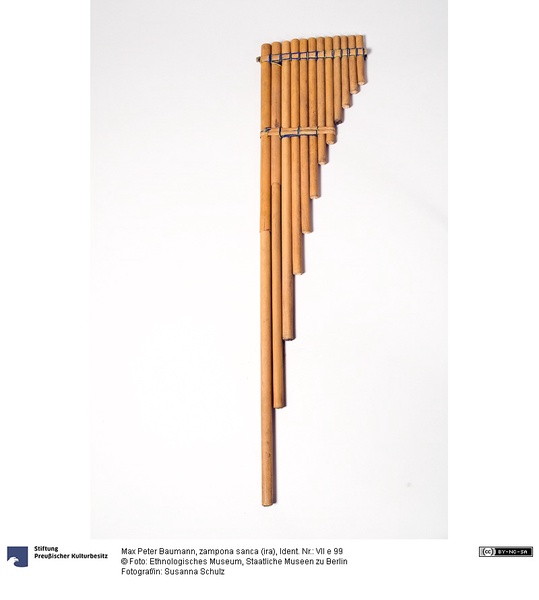1.8: Sección 1 - Pronombres de objetos directos e indirectos
- Page ID
- 104505
Double-object pronouns occur when you combine both a direct and an indirect object pronoun in the same sentence. If you have a hard time distinguishing between direct and indirect objects, review the previous section. Pronouns are a short-hand in conversing: it saves a lot of time if we can use pronouns when referring back to things already mentioned in a conversation. Read the conversation below and think about how awkward it would sound if you kept using "la película" in every instance.
Maite: Acabo de ver una película fenomenal, David. Necesitas verla pronto.
David: Así que me la recomiendas. Ahora tengo muchas ganas de verla. Voy al cine esta semana.
In David's response, he uses a double pronoun construction:
Me la recomiendas
(You recommend it to me)
In these constructions, the order of the pronouns is:
- IO + DO + conjugated verb
- Me la das
- Me la quieres dar
- Me la estás dando
- Conjugate verb + infinitive + IO + DO (pronouns attached to the infinitive)
- Quieres dármela
- Estar + present participle/gerund + IO +DO (pronouns attached to the infinitive)
- Estás dándomela
Otros ejemplos
In the examples below, the speaker is asking questions and the listener responds. (Note: the pronouns shift depending upon who is speaking.)
- ¿Me compraste el billete? (Did you buy me the ticket?)
- Si, te lo compré.
- Me ----> te (the perspective changes - the listener is now the speaker responding to the question)
- el billete -----> lo
- Si, te lo compré.
- ¿Me regalaron los libros? (Did they give me the books?)
- Sí, te los regalaron.
- Me ---> te (the perspective changes - the listener is now the speaker responding to the question)
- los libros --> los
- Sí, te los regalaron.
- ¿Necesito prestarte el bolígrafo? (Do I need to loan you the pen?)
- No, no necesitas prestármelo
- Te ---> me
- el bolígrafo ---> lo
- No, no necesitas prestármelo
- ¿Nos dieron el dinero? (Did they give us the money?)
- Sí, nos lo dieron. (Yes, they gave it to us.)
- nos ---> nos (Stays the same because the speaker is included in the pronoun, "us".)
- el dinero ---> lo
- Sí, nos lo dieron. (Yes, they gave it to us.)
Una Pequeña Complicación
When the pronouns le/les are followed by the direct object pronoun (lo/la/los/las), then le/les changes to SE. Let's look at this first as a series of steps:
EJEMPLO 1:
Entregaste la tarea a la profesora
STEP 1: Change the IO into an IO pronoun
Le entregaste la tarea
STEP 2: Change the DO into a DO pronoun
Le la entregaste (OJO: You're not finished! The le la combination means that le --> se)
STEP 3: Se la entregaste
EJEMPLO 2:
Vas a dar la taza a tu abuelo
STEP 1: Change the IO into an IO pronoun
Vas a darle la taza o Le vas a dar la taza
STEP 2: Change the DO into a DO pronoun
Vas a dárlela. o Le la vas a dar (YIKES!!! Remember: le --> se with the le la combination)
STEP 3: Vas a dársela. o Se la vas a dar
EJEMPLO 3: Fill in the steps on your own
Estoy preparando café para ustedes (OJO: remember that para can introduce an IO)
STEP 1:
STEP 2:
STEP 3:
- Answer
-
STEP 1. Estoy preparándoles café o Les estoy preparando café
STEP 2 Estoy preparándoleslo o Les lo estoy preparando café (UGH)
STEP 3 Estoy preparándolselo o Se lo estoy preparando
Exercise \(\PageIndex{1}\)
Replace the indirect objects and direct objects with their pronoun forms and then rewrite the sentence beside it.
1. Leo los libros a los niños.
2. Me recomiendan el restaurante.
3. Te prestamos el dinero.
4. Le hablo francés.
5. Le escribieron los postales
6. Preparamos la cena para ellos.
- Answer
-
1. Se los leo.
2. Me lo recomiendan.
3. Te lo prestamos.
4. Se lo hablo.
5. Se los escribieron.
6. Se la preparamos.
Para explorar más
You can watch the video below to get a more in-depth explanation of double pronouns. Use this worksheet to answer along with the examples provided.
Actividad 2: Los recuerdos
Ana compró varios recuerdos durante su visita a Perú pero ahora tiene que decidir a quienes les quiere dar cada cosa. A continuación hay una lista de gente y la lista de recuerdos. En parejas, emparejen el recuerdo con la persona y después escriban una frase detallando toda esta información y la razón por su decisión.
| Persona | Recuerdo |
| Su mamá: Le encanta trabajar en su jardín, es muy elegante, y es muy aficionada de fútbol. | una pintura |
| Su abuelo: Es un cocinero excelente, le encanta viajar, y pasa horas mirando el canal de historia. | un chullo hecho con alpaca |
| Su amiga, Susana: Estudia ecología en la Universidad, juega al fútbol, y le encanta tejer. Le dio a Ana una manta que había tejido para su cumpleaños. | una bufanda |
| Su hermanita: Tiene once años, le importa mucho vestirse bien, y últimamente ha repintado su cuarto y lo está decorando. | una zampona |
| Su novio: Es muy coleccionista, estudia historia y música en la universidad, le encanta esquiar. | Unos chocolates orgánicos |


"Traditional #peruvian hat. #nofilter #peru" by Leandroid
CC BY-NC 2.0

by Cancillería del Perú CC BY-SA 2.0


